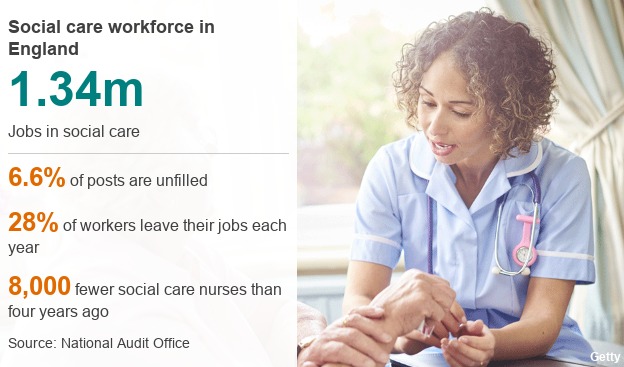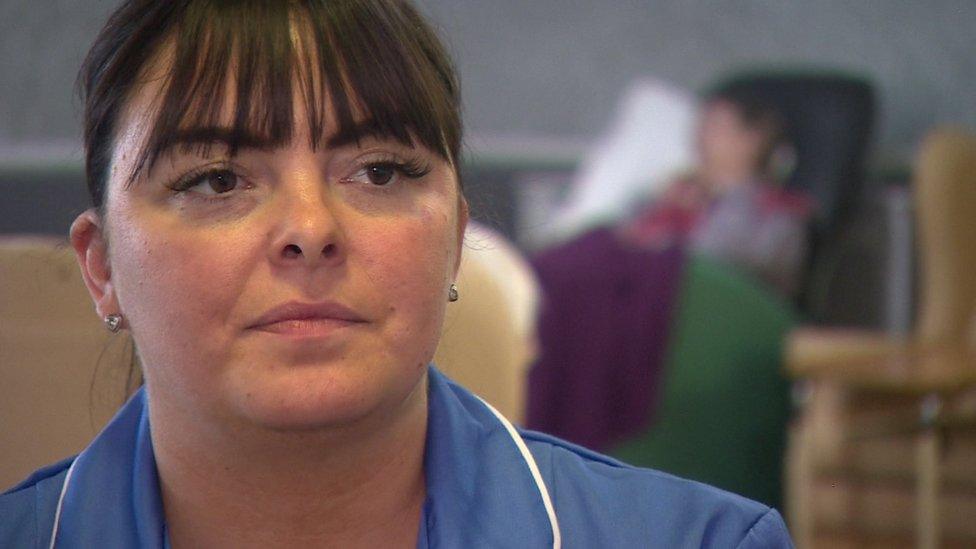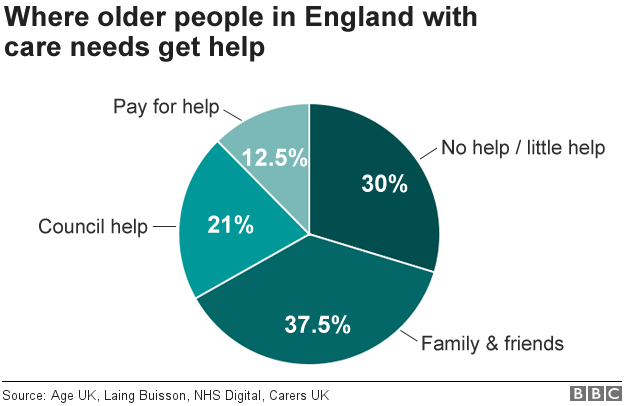Care sector: 'Short of nurses and other key staff'
- Published
- comments
Low rates of pay and workload pressures mean care services can no longer fill key posts in England, a watchdog says.
The National Audit Office, external said a lack of government planning and funding had undermined the "Cinderella" service and its 1.34 million staff.
The sector was struggling in particular to recruit nurses and senior staff to run services, causing the elderly and disabled to go without care, it said.
The warning comes as ministers draw up plans to overhaul the sector.
The government has promised a Green Paper with proposals to change the way care services work will be published by the summer.

This will cover care homes and support in the home for tasks such as washing and dressing paid for both by councils and privately by individuals.
The NAO said changes were desperately needed, as there was no guarantee the extra £2bn being invested in the sector over the next three years would have any significant impact.

'You have to be on the ball all the time'

Tammy Ardron works as a nurse in a nursing home in South Yorkshire.
She says she is not surprised nurses turn their backs on the sector because it is an incredibly demanding job.
She says she works 12-hour shifts and has to care for 30 different people at a time, many with complex conditions and challenging behaviour.
"It is busy. You've got to be on the ball all the time.
"When you are hospital based you have doctors at the end of the beep, somebody to call on. Here you are on your own."

The review warned low rates of pay - most of the 815,000 carers in the system were paid less than £7.50 an hour and a third were on zero-hour contracts - was making it difficult to attract staff.
Across the sector, 6.6% of posts remained unfilled, with 28% of staff leaving their jobs each year - double the rate in the wider economy.
But the most serious problems were being seen in key posts:
One in 11 nursing posts was vacant, after the numbers working in the sector fell by 8,000 to 43,000 in the past four years
One in nine register-manager jobs was unfilled, these are considered vital to ensure services comply with laws and regulations
The NAO said it was clear councils were struggling to find the money to fund the services properly.
And this had meant that people who paid their own fees - the system is means-tested - were effectively subsidising the state.
NAO chief Amyas Morse said: "Social care cannot continue as a Cinderella service - without a valued and rewarded workforce."

Councillor Izzi Seccombe, of the Local Government Association, said councils were doing all they could to "protect services", but without extra funding in the forthcoming change of the system she feared providers of services would start pulling out of the sector.
Caroline Abrahams, of Age UK, said the report was a "damning indictment of the failure of successive governments" and meant frail older people were going without the care they needed.
The government said it would unveil its plans for the sector later in the year and also pointed out Health Education England was currently putting together a 10-year workforce strategy which would take a long-term look at the sustainability of the health and care sectors.
- Published13 July 2016

- Published12 February 2016

- Published21 November 2015
